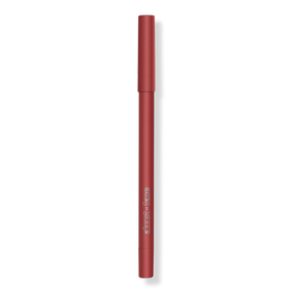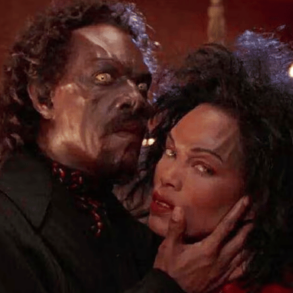Welcome to Beauty Around the Clock, Marie Claire’s weekly peek into the daily lives of some of the most game-changing men and women in their industries. Ever wonder how they get it all done in a day? Here’s your answer.
This year marks the 50th anniversary of the Battle of the Sexes, the highly publicized tennis match between tennis star Billie Jean King and former world number one tennis player Bobby Riggs. Now further immortalized in a blockbuster movie starring Emma Stone, the match was particularly tense because of its symbolic meaning: Riggs, who described himself as a chauvinist, said that even though he was 55 years old at the time, he could still beat any female tennis player—including Billie Jean King, who was 29 at the time. He also claimed that women’s tennis was fundamentally inferior.
But on September 20, 1973, King proved him wrong, beating him in three straight sets. 50 years later, King still watches the match and even critiques her own plays.
“Last night, we got a text from Ilana’s sister (Ilana’s my wife), and she said, ‘Your match is on.’ ESPN had thrown the match on, and I didn’t know,” she marvels. “So we got to watch this match from 50 years ago again, and I was screaming at the top of my voice telling myself, ‘That’s terrible! Why didn’t you do this?’ Nothing changes. It doesn’t matter your age.”
King has become an icon both on and off the court. The same year as the Battle of the Sexes, she was able to negotiate equal prize money for women’s tennis at the U.S. Open (in 1972, the male champion was awarded $25,000, whereas King, who was the female champion, only got $10,000.
“Sports are a microcosm of society,” King explains. “Women in sports trust their bodies. We make goals. You just learn to believe in yourself better. Sports teach you how to be a teammate and not always lead. They help you be agile as you go through life, which is really important.”
I had the privilege of picking King’s brain on the anniversary (to the day!) of the Battle of the Sexes, and took the opportunity to not only ask her about women in sports, but also to learn how she manages her day to day. Naturally, the sports and activist legend has a few pointers on wellness, motivation, and mental health that continue to drive her success. Below, she walks us through that routine, unpacking her beauty regimen, mental health mantras, sources of inspiration, and ethos around making a positive impact.
Morning Maintenance
I love E.L.F’s Holy Hydration. I’ve had fun with E.L.F. because I talk to young people—they always know what’s going on, they always tell me what’s happening—that just love E.L.F. Obviously, the price is right, but the product holds up. It’s the product that works. First of all, I use Holy Hydration. I love to say the name, but I use it day and night now because I like it so much. The quality is amazing and the owners are on a mission so that people can get cosmetics and not have to pay such a ridiculous markup for them.
I also use foundation/sunscreen because I just like the way it looks. You look finished whether you want to go out or not. It brightens up my face and helps my eyes pop, which I like. Also, I like it because I know it’s protecting my skin. I have vitiligo, so that’s really important to me to protect my skin with sunscreens. I usually don’t go outside without sunscreen anyway—I never do.
Did you know that sunscreen wasn’t on the market until about 1972? I was playing in the ’50s and ’60s, and I think I was the first person to use sunscreen as soon as it came out. I put it on the back of my hands, on my face, and my neck, and then I try to just stay covered if I can. Sunscreens are especially important for your neck, and athletes know this.
Signature Look
I love a darker look, but it depends on what I’m wearing. I love glasses, which you’ve probably noticed. But I do love color—I’m so pale, and I really do need makeup to look alive; to look perky. I don’t go without it.
When it comes to makeup, I usually get professional makeup artists because I can afford it now. But in the old days, I did it all on my own. I’m big on eyes and brows. Also, makeup protects our skin, which I really like. I also like the blush and lipsticks—they come in a lot of different, really beautiful colors. I like color.
Self-Care Ritual
It’s very important to hydrate yourself, whether you’re playing sports or not. I try to use filtered water even at home. I think that’s important. I don’t eat red meat and haven’t eaten red meat for years, and I feel better. I eat a lot of salmon, actually. I love salmon, which has Omega-3s, and I love vegetables. I like what you’re supposed to eat, but my biggest downfall is sugar, unfortunately. That’s one of my challenges, but it’s good and I think people should indulge a little—especially women, who are taught some food and drinks are wrong.
Girls are taught to be perfect and boys are taught to be brave. Well, girls can never be perfect—nobody can be. And that applies to eating, the body, and body image. I have an eating disorder. I went to an eating disorder place. I’m a binge eater. I know what I have to deal with, and I still do therapy. I’m very big on mental health. I always have been. But when we were younger, we couldn’t talk about it to the media and to the press. Now, it’s in and everybody can talk about it, so it’s better. See, I think young people are good that way, in just getting out there.
Mindset Mastery
I think I like pressure and being busy and all that, and I meditate. I’ve learned meditation the last 35, 40 years. I’ve always been big on meditation, and having therapy once a week has been helpful. I recommended it. If you can afford it, do it—ask for help. Ask for what you want and need. Girls are taught not to ask for what we want or need, but it’s good to. It’s being honest and true to yourself, and it helps you to become stronger as a human being. Also, don’t take anything personally. That has probably helped me more than anything. Because I think each person is doing the best they can, and they’re the ones that said it, while I just received the information. So it’s really about them. That’s also a way to stay calm and not get crazy or angry.
When I meet somebody, I never try to have any pre-judgments at all. I try to just start from the beginning. Don’t make any judgments until you get to know a person. We’re all human. No matter what you do for a living, everyone’s important, and everyone has a great story to tell. I always tell everybody, “If you think someone’s boring, it means you’re not asking the right questions.”
Beauty Icon
Sometimes, the icon I admire is somebody that nobody would know. It might be somebody I met today, and they showed me something that I didn’t expect, and they inspired me. But I have so many people: I really admire the women who started Black Lives Matter, and I would love to meet them. I’ve never had the opportunity to thank them, because I think they changed the world; made us really pay attention. I admire people who passed away like George Floyd, and also the woman who filmed the video and stayed in there even though the police kept telling her to get back. I had a hard time watching it, but I thought it was important to watch it—to make yourself do so—to just remind us how horrible people can be to each other.
I also admire Malala Yousafzai. I’ve just gotten to know her. She won the Nobel Peace Prize but she’s also in education. But guess what she’s into now? Women’s sports, because she understands what sports do for women.
I really admire leaders, too, and I don’t know how they do it sometimes. Like Kamala Harris—that job is so difficult. Also, I think Cynthia Marshall, who’s the first Black woman to ever lead an NBA team. She leads the Mavericks in Dallas. I admire her because that’s got to be tough. There’s also Patrick Mahomes, the [Kansas City Chiefs] quarterback. I think he’s fantastic. And there’s Deanna Flores, who’s in flag football. I admire Amanda Gorman, the poet, and Greta Thunberg, who’s made an imprint on all of us to pay attention to our environment.
Backup Career
Before Title IX passed in 1972, there were classroom quotas. For instance, if you wanted to go to Harvard and become a doctor, only 5 percent of the class were women. Everyone takes these things for granted now, because 60 percent of collegiate students are now women, but that’s because of Title IX. Women also couldn’t get a credit card on our own in 1973. I mean, things like that, we take for granted now.
[The Battle of the Sexes match] gave women self-confidence. They believed in themselves. That’s the main thing they told me: “It changed my life. I thought I was going to have nothing in my life. I saw that match and it changed my life. I made goals. I went for it. I’ve had a great life because of that. It was a turning point.” And if you can be that for others, it’s really fantastic.
P.M. Routine
I’m just starting to use all these new E.L.F. products, and the makeup remover is good, too. Then the Holy Hydration—I’m having a blast looking at them, and I love that color blue that they have [on the Holy Hydration container]. I don’t know. Something about it makes me feel good.
Shop Billie Jean King’s Favorite Products
This post was originally published on this site be sure to check out more of their content.











